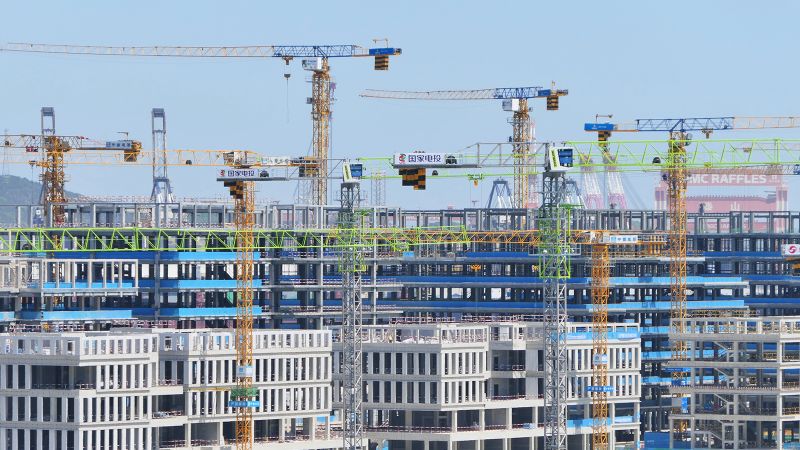Beijing has announced a new plan to rescue its struggling property market, including buying unsold homes from developers and converting them into social affordable housing. The plan also includes reductions in mortgage interest rates and downpayment ratios, as well as 300 billion yuan in central bank cash to fund state purchases of unsold properties. This move follows a top-level meeting of China’s ruling body, indicating that stabilizing the property sector is a top priority in reviving the country’s economy.
However, experts are skeptical about the effectiveness of the plan, citing the small scale of funding compared to the massive amount of unsold homes, unfinished projects, and unused land in China. It is estimated that over 7 trillion yuan may be needed to reduce housing supply to 2018 levels when the real estate boom peaked. The current funding announced by the People’s Bank of China may not be sufficient to address the magnitude of the issue.
There are concerns about the implementation and funding of the government purchases, as well as the ability of cash-strapped local governments to contribute to the plan. The PBOC has suggested the possibility of bank loans to support buying, but analysts believe that much more funding will be required to address the backlog of empty or unfinished homes across the country.
The housing market slump has added to the financial woes of local governments in China, as land sales account for a significant portion of their revenue. With local governments already carrying a substantial amount of debt, there are limited options for finding the funding needed to support the real estate rescue plan. The potential increase in debt could further strain local government finances and impact basic services for residents.
Experts suggest that addressing the oversupply of unsold homes is just the first step in stabilizing the property market. The government also needs to boost housing demand and mitigate the contraction in property construction, which may require additional measures to revive consumer confidence and housing prices. The external environment, including new tariffs imposed by the US and potential actions by the EU, could further complicate China’s efforts to revitalize its property sector.
Despite the challenges, some economists believe that the government’s bold initiative to address the housing crisis will help stabilize expectations and prevent a potential deflationary spiral. They stress the importance of expanding the rescue plan and introducing detailed policies to stimulate the housing market. In the long run, the plan could lead to the end of China’s housing crisis and prevent further economic downturn.













